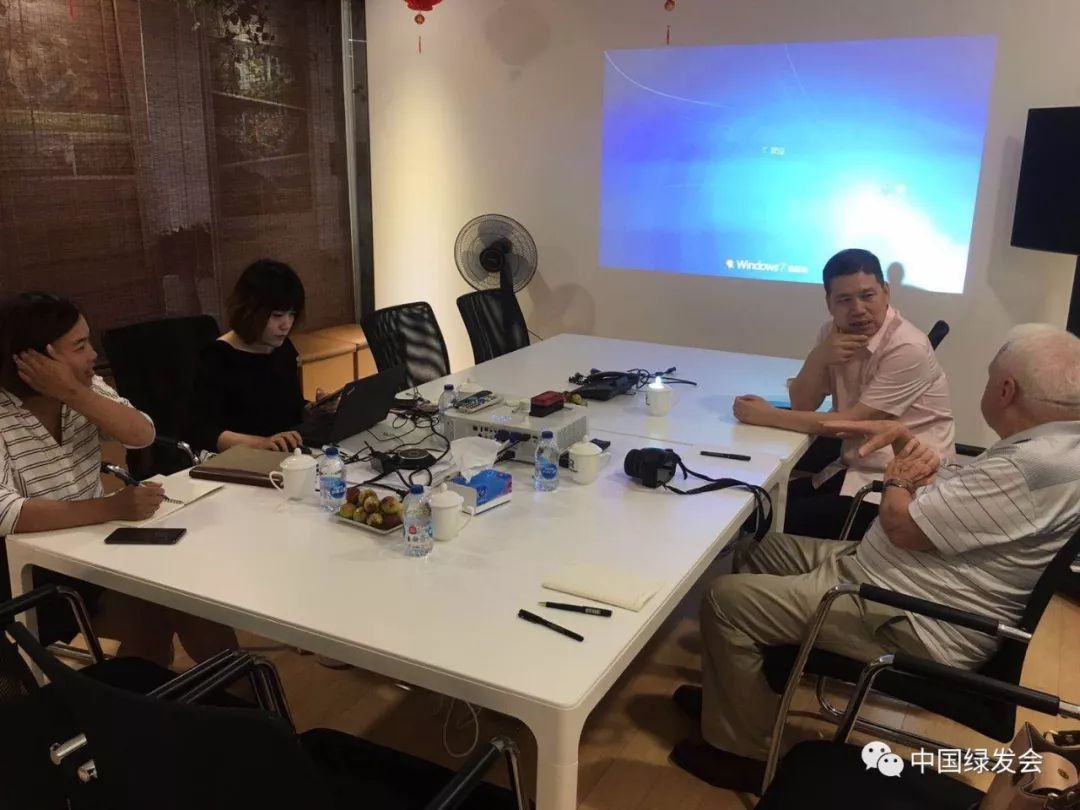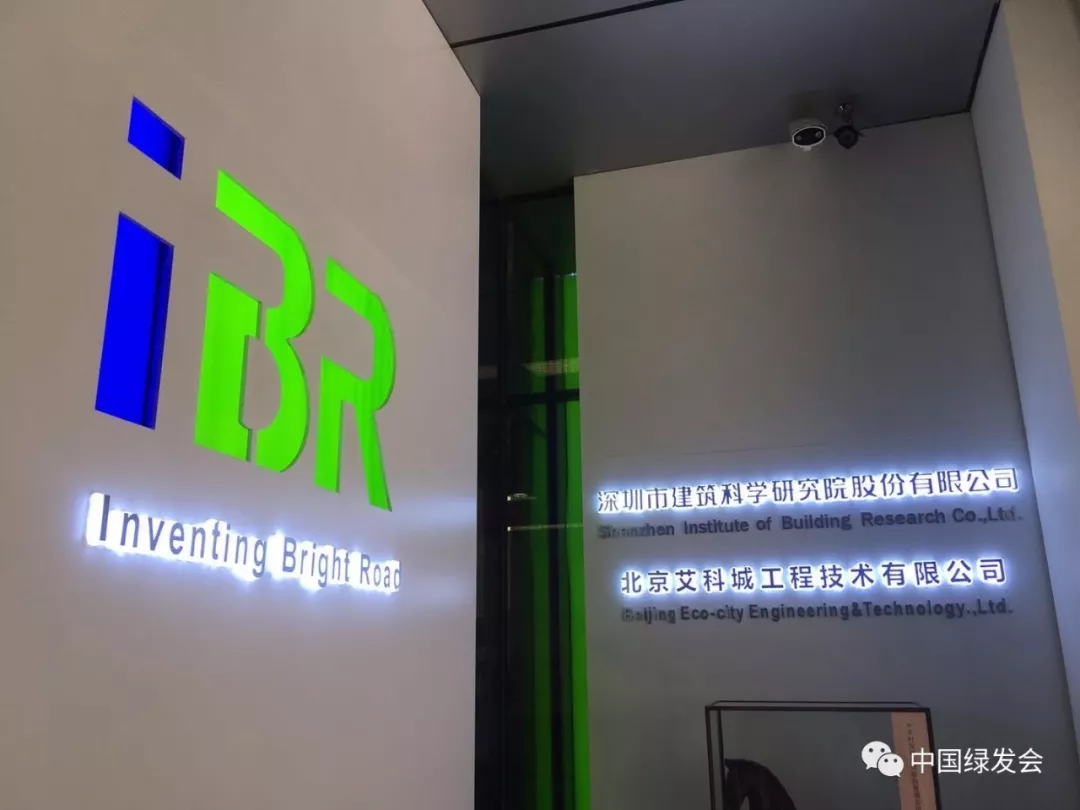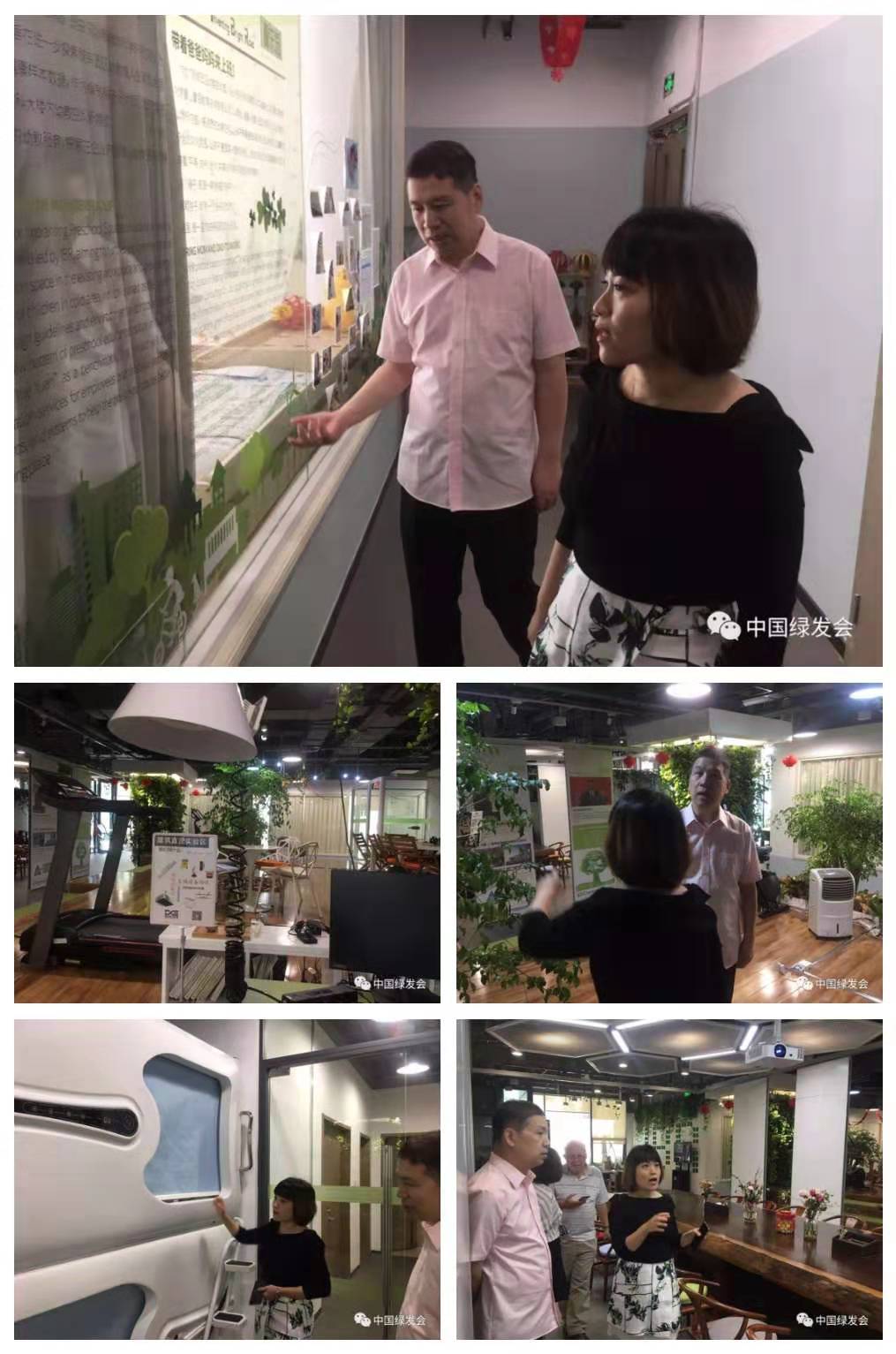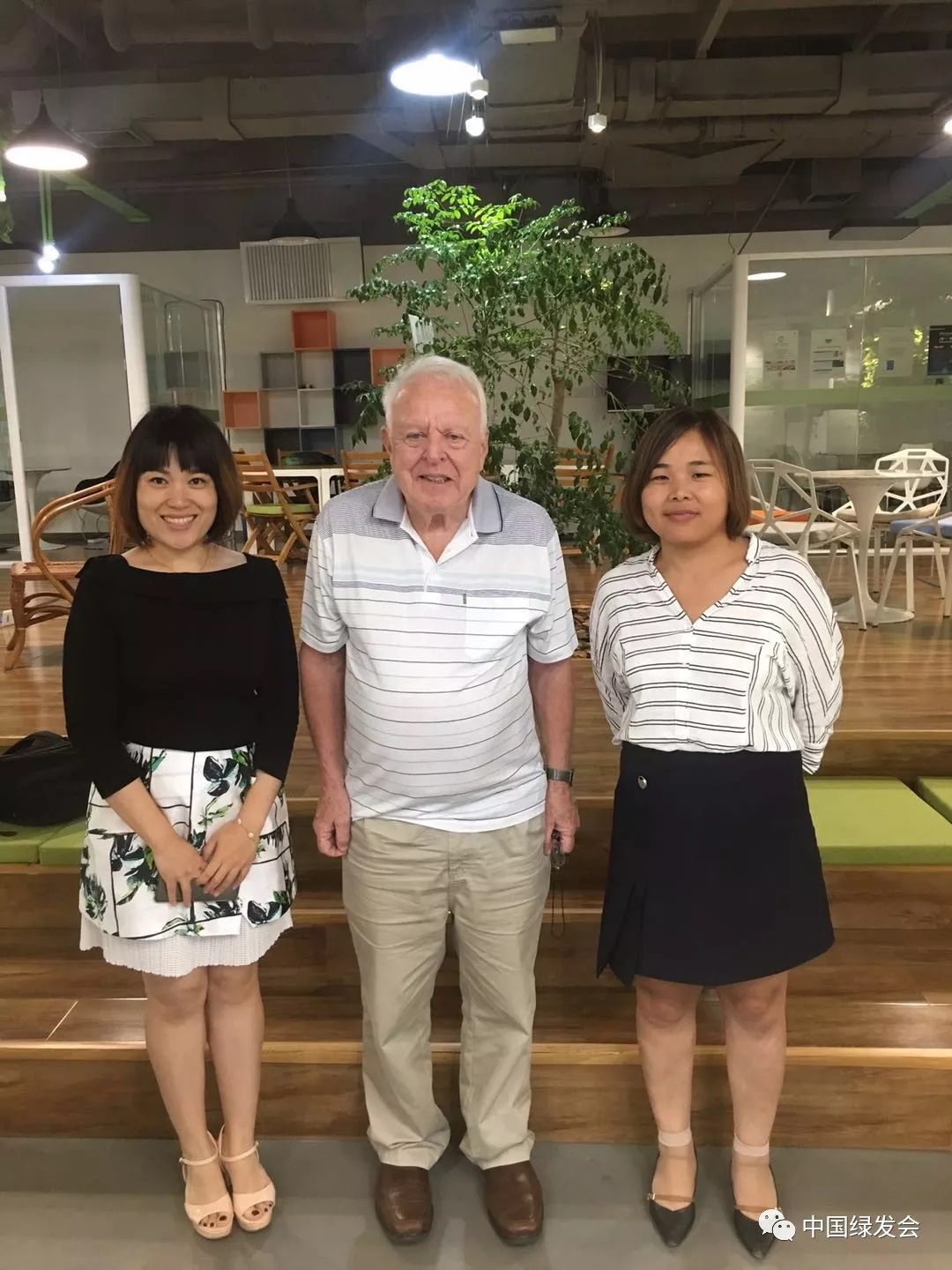On September 24, Zhou Jinfeng, Secretary-General of the China Biodiversity Conservation and Green Development Foundation(CBCGDF), and Professor Fred Dubee, Director of the International Working Committee of the CBCGDF met with Dr. Li Fen, Chief engineer of Shenzhen Institute of Building Research (IBR), and discussed the positive actions in mitigating and adapting to climate change as well as future directions for cooperation in this area.
Dr. Li Fen first led Secretary-General Zhou to visit the Beijing Office of Shenzhen Institute of Building Research. Dr. Li Fen introduced to Secretary-General Zhou that ecological zones, DC terminal test zones, capsule apartments, and atrium variable meeting spaces have integrated the ecological concepts of environmental protection, simplicity, green and sustainability, creating a green, comfortable working environment. For example, capsule apartment, which not only saves space and operating costs, but also provides convenience for overtime workers, and its advanced low-carbon environmental protection model has been accepted by many contemporary countries.
During the meeting, Fred Dubee, Director of the International Working Committee of the CBCGDF, introduced to Secretary-General Zhou and Dr. Li Fen the report that seagrass and mangroves can cool the earth by 1.5 degrees Celsius. Fred talked about global climate change as one of the great challenges facing mankind today. Human beings need to recognize the urgency and seriousness of climate change and climate crisis. Seagrass and mangroves are powerful weapons against global warming because their rapid photosynthesis can effectively absorb carbon dioxide in the atmosphere, and algae such as seagrass grow economically and environmentally friendly. Fred said the serious consequences of climate change exacerbate sea level rise, and coastal cities such as New York and Shanghai are in danger of being flooded. CBCGDF has a lot of experience in this area, including the establishment of many Chinese Conservation Areas to protect plant and animal species, wetlands and so on. Actions to mitigate global climate change need to arouse more people's awareness and involve all kinds of institutions, including high-tech enterprises such as IBR.
Dr. Li Fen talked to Fred about last year's extreme natural disaster in the south, Super Typhoon Mangkhut. "Super Typhoon Mangkhut" has brought huge economic losses and serious damage to the south, which also reflects the fact that the city's rapid response to natural disasters still needs to be improved. Dr. Li Fen emphasized that there is a consensus on tackling climate change and natural disasters at the global level. Next, relevant theories and methods of dealing with climate change and resilient cities need to be practically guided to implement urban adaptation programs. Secretary-General Zhou and Fred are willing to provide international experts team support to help implement IBR and Shenzhen related projects. Finally, we look forward to working together to mitigate climate change and global sustainable development.




(Photo credit: CBCGDF)
Original Chinese article:
http://www.cbcgdf.org/NewsShow/4854/9966.html
By / Li Xue
